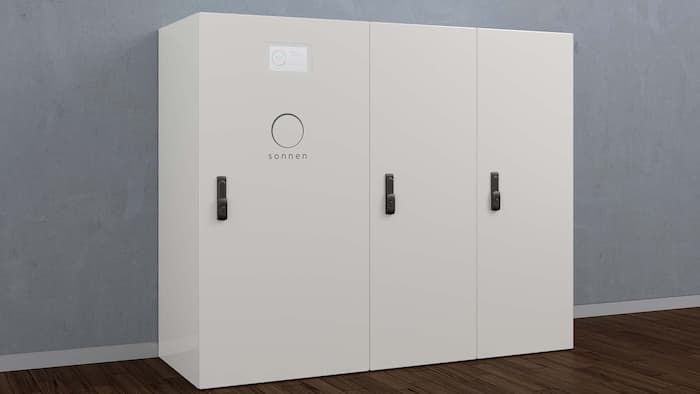Germany’s Sonnen Raises $85m in 4th Funding Round
Published on by Water Network Research, Official research team of The Water Network in Business
Sonnen, the German energy storage start-up, has raised $85m in a fourth fundraising round as it seeks to expand its business and attract more customers on to a renewable energy grid.
 Europe’s largest maker of rechargeable energy storage units has secured investments from Envision Energy, the Chinese wind turbine manufacturer, and Thomas Putter, the former chairman of Allianz Capital Partners, in a financing round that has exceeded the previous three combined. GE’s venture capital arm took a stake in the group in June.
Europe’s largest maker of rechargeable energy storage units has secured investments from Envision Energy, the Chinese wind turbine manufacturer, and Thomas Putter, the former chairman of Allianz Capital Partners, in a financing round that has exceeded the previous three combined. GE’s venture capital arm took a stake in the group in June.
Sonnen will use the capital to help it make the shift from being a manufacturer of battery-storage systems to a service provider that aims to displace traditional utilities. “We want to be the utility of the future,” Christoph Ostermann, chief executive and co-founder, told the Financial Times.
Sonnen, founded in 2010, was set up to provide homeowners with lithium-ion battery packs powered by solar energy. Its “sonnenBatterie”, akin to Tesla’s Powerwall unit, enables users to cut monthly bills and rely on clean energy for most of their power needs. Any extra energy is provided by connecting to the power grid.
In February, Sonnen entered phase one of its business expansion with the launch of sonnenCommunity, a virtual network. The initiative connects homes that independently produce energy, allowing them to buy and sell excess energy to each other at a reduced cost of 23 cents per kilowatt hour. That is a fifth cheaper than the 29 cent charge for power from the grid, according to German Association of Energy and Water Industries.
It costs €20 a month to be a member of the community, which covers Germany, Austria and Switzerland. Sonnen said it aimed to begin expanding the virtual network to Italy, Australia and all 50 US states in the next year. “This is a very exciting brand new business field,” said Mr Ostermann.
Phase two of the expansion, called sonnenFlat, eliminates monthly fees altogether. Customers still need to pay for the installation of solar panels and battery pack, but have the option of installing a small device into the wall that, by sending and receiving signals from the grid operator, performs a service that helps to mitigate fluctuations in the power supply.
 When there is excess energy from the grid, the device can trigger the sonnenBatterie to charge, extracting excess energy from the grid.
When there is excess energy from the grid, the device can trigger the sonnenBatterie to charge, extracting excess energy from the grid.
If there were a sudden power surge, for instance, thousands of Sonnen batteries would act as a virtual power plant and be able withdraw huge amounts of energy from the grid, helping the operator to stabilise power.
The operator will pay Sonnen for this service; Sonnen, in turn, is paying its customers by providing free energy.
“This is the idea of a new energy market,” said Benjamin Schott, Sonnen’s director of business innovation, earlier this month at ecoSummit 2016 in London. “Every one of us gives a piece of service to the system, and the system works, but I don’t have to then pay for every kilowatt hour.”
Sonnen is working to reduce the upfront costs of joining the network. Mr Ostermann said that a battery costing €25,000 six years ago now costs €5,000. He is hoping to get that price down by another 80 per cent in the next three years.
Sonnen has sold more than 15,000 battery packs. Mr Ostermann said that the company’s German operations, where it derives two-thirds of its revenue, are profitable, but it is investing these profits into international expansion.
He declined to give figures but said that Sonnen expected to turn a net profit by the end of next year, the same time the company may consider an initial public offering. Sonnen would not say what sort of valuation it was aiming for.
“Next year the revenue share coming from abroad will significantly increase,” he said. “We’ve just started ramping out with these investments.”
Source: Financial Times
Media
Taxonomy
- Business Expansion
- Energy
- Funding Partnerships
- Batteries
- Business Development
- Energy-Water Nexus
- Battery